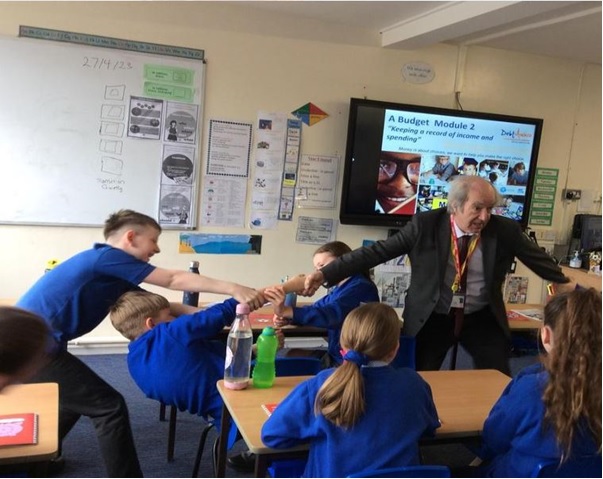The lesson was really enjoyable and it was good listening to the diaries. When I arrived home I told my mum all about the lesson and even rang my dad and told him. I am looking forward to the next Money Management lesson - Kourtney, age 10
According to Money and Pensions Service, 39% of the UK adult population, equating to 21 million people, is currently either in need of debt advice or deemed ‘at risk’ of falling into problem debt.
Whilst research* shows that key attitudes and behaviours to money are developed in early childhood, unfortunately, financial capability education is still not a compulsory part of the national primary curriculum.
Our pioneering DebtAware programme seeks to equip children with the essential life skills that they will need to successfully interact with the world of finance as adults.
Each year, DebtAware delivers lessons to over 10,000 Y5 and Y6 children. Since the programme was established, over 80,000 children have taken part.
This has been such a valuable programme for the school to work on. Throughout the lessons the children have worked on practical activities looking at saving, identifying ‘wants and needs’ and budgeting. We believe it is vitally important that from a young age all children develop their understanding of money management as it affects every aspect of daily life - Georgina Ryding, Headteacher at St Matthews, Bolton
The programme not only seeks to embed key knowledge and understanding that will enable children to make informed financial decisions but it also seeks to develop positive attitudes and behaviours to borrowing and saving.
This includes understanding the difference between needs and wants, how to manage a budget and how to build contingencies to mitigate the risk of future financial emergencies.
By donating, you can help us to build a brighter future for even more children by giving them the knowledge and skills they'll need to manage their money with confidence in years to come.
* Habit Formation and Learning in Young Children by Dr David Whitebread & Dr Sue Bingham, University of Cambridge

